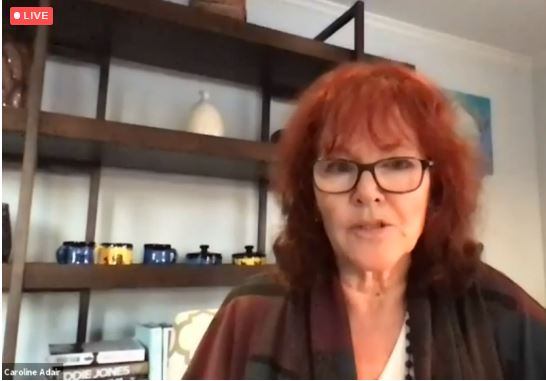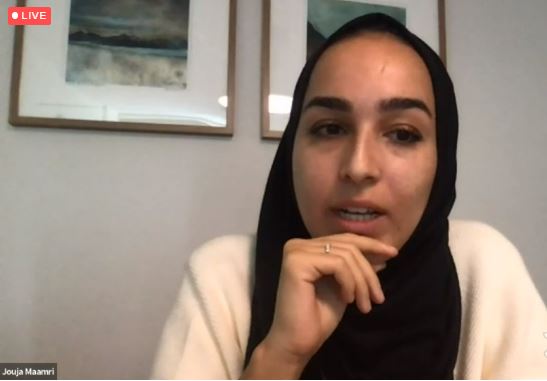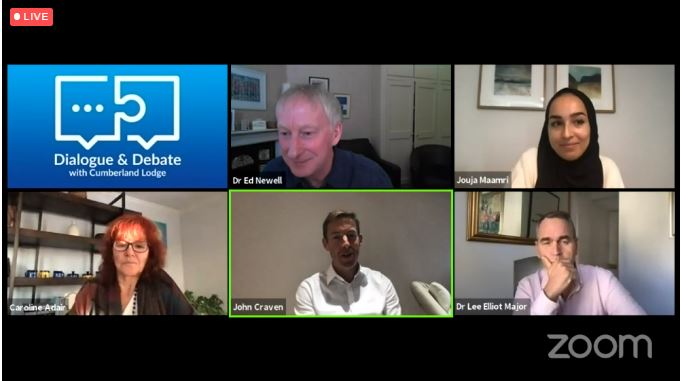Is education the answer to social mobility? This was the premise of the webinar hosted by Cumberland Lodge on Wednesday 4 November 2020, which tackled several different questions relating to the persistent challenge of social mobility in the UK.
So what do we mean by ‘social mobility’? Social mobility is about making sure that every young person has fair chances in life, regardless of personal circumstances like where they live, what school they go to, how much their parents earn or whether they went into higher education.
According to Dr Lee Elliot-Major, Professor of Social Mobility at the University of Exeter, the picture today is ‘grim’ – young people under the age of 25 are now more likely to experience downward mobility than their parents were.
Jouja Maamri, Sustainability & Impact Manager at Regenerative Creations, noted that there are often lots of problematic stereotypes in these debates that allow for us to put blame on individuals rather than looking at the system at large. Following her lead, I want to address several of these systemic issues here.
Education vs employers
To answer that fundamental question around the role of education in social mobility, Lee set the scene by noting that while education can be a powerful driver, the evidence overwhelmingly suggests that so much goes on ‘outside of the school gates’ that it is impossible for education to solve all of the issues.
Alongside a myriad of other factors (including child poverty and ‘aspirations’, both of which I’ll come back to), the panel stressed how important employers are in these debates. Caroline Adair, Funding & Development Director of the social mobility charity Leadership Through Sport & Business, pointed out that many of the young women she works with have caring responsibilities within their families. Adjustments need to – and are – being made so that they can engage more easily in activities like work placements.

‘Awkward climbers’ and the role of aspiration
One of the more challenging ideas that was raised during the conversation is the presumption that it is desirable to occupy the upper echelons of our social and economic strata. As some of the panellists pointed out, high society isn’t everyone’s ‘cup of tea’: Lee’s phrase ‘awkward climbers’ sums up what the experience of moving across classes can feel like.
This is where the panellists were keen to stress that the debate needs to be about knowledge and opportunity – are we making sure that every young person knows about the full range of opportunities available to them, so that they can make informed choices about their future?
This ties into the role of ‘aspirations’, and the panel were quick to shut down the idea sometimes muted that working-class parents don’t have high ambitions for their kids or haven’t thought these issues through. John Craven, Chief Executive (CEO) of the social mobility charity upReach, highlighted some of the significant challenges around awareness – many parents don’t know about the opportunities that exist.

For Lee, the question of aspiration is more reflective of the ways in which they British education system rewards a narrow form of attainment – overly focusing on academic merit, to the detriment of more vocational or creative paths. He said that working-class families, ‘have aspirations, but they might not agree with the model that the middle classes have offered, which they are almost destined to lose.’
This made me think about the classic 1977 study by Paul Willis called Learning to Labour, which followed a small group of school-age working-class men in Birmingham in the early 1970s. These young men held highly negative attitudes towards education: they weren’t interested because they saw it as ‘middle-class’. They knew that they were destined to work in factories and did not see the point in trying to be successful at school.
For me, both the issue of the awkward climbers and challenges around aspiration do come back to questions of education but only when it is understood in its broadest sense. Of course, an equal educational system must be able to illustrate to its young people the range of options out there, so that they can decide if they want to become ‘awkward’. But I also think that political education is necessary, so that the young men like those in Willis’ study understand that while the system might be stacked against them, there are significant ways in which working-class people can fight back.
Diversity at the top
One of the most significant issues raised was the diversity of our decision-makers. For example, referring to the recent decision by the Conservative party to vote down a bill to extend free school meals throughout the school holidays, Lee said: ‘We have big issues around diversity at the top of society. Look at Marcus Rashford, he’s experienced being on free school meals and has fundamentally challenged our political leaders.’
I currently work for the Sutton Trust, a UK charity which champions social mobility. I have the immense privilege of being responsible for the Trust’s work with alumni – we want to continue to support these exceptional young people throughout their lives and also to find ways in which they can champion social mobility themselves. The highlight of my time at the Trust has been to recruit and work with our Alumni Leadership Board. As the name suggests, a key aim of the group is to help to develop social mobility leaders – one of the panellists in this webinar was a member of this group, the brilliant Jouja Maamri.

Thinking about this and about the debate over free school meals, I hope Lee won’t mind me writing about something I heard him say while was CEO of the Trust. He has been known to say that social mobility needed to be a ‘Trojan horse’ – if we got enough working-class young people into positions of influence across all different spheres of society, then maybe they could fundamentally change the system.
My hope is that these Spartan soldiers, like Jouja, continue to use the spaces they are smuggling themselves into to tackle the truly difficult aspects of this conversation, including the political barrier that make social mobility such a hard issue to solve.

